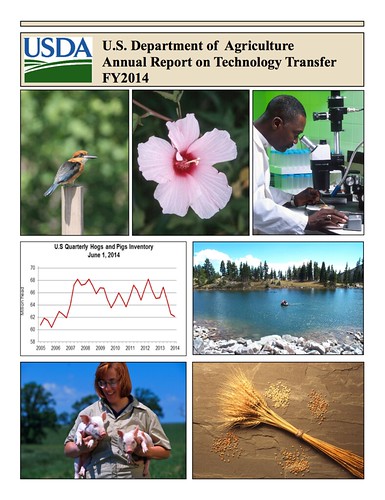
People who suffer from peanut and wheat allergies may soon find relief thanks to USDA funded research.
The release of the USDA’s 2014 Technology Transfer Report highlights the groundbreaking discoveries made by USDA researchers, who continue to push the envelope and come up with new and exciting innovations. The scientific advancements in knowledge and the creation of new technologies directly impact Americans in that they create safer environments and provide efficient solutions for a wide range of issues. Here are just four of the transformative innovations that can be found in the USDA Tech Transfer Report:
- Allergies to peanuts are among the most severe of all food allergies, affecting some 2.8 million people in the United States. Researchers found that by soaking roasted peanuts that have been shelled and skinned in a solution containing food-grade enzymes; they can virtually reduce or eliminate two key allergens, without affecting the flavor. Read more about this on page 198.
- The creation of a portable method for identifying harmful bacteria in food that prevents foodborne illness and safeguards public health. This new instrument rapidly detects pathogenic bacteria with extremely accurate results. Details are on page 76.
- A new soil nitrogen test that rapidly and inexpensively determines the total amount of nitrogen in the soil that is available to a plant. The use of this test reduces fertilizer application amounts, reduces costs for farmers, and benefits the environment. You can learn more on page 89.
- A new process for pasteurizing shelled eggs that uses radio frequency energy that is 1.5 times faster than the current pasteurization process and that does not affect the eggs’ appearance. This fast new technology should increase the number of pasteurized eggs and reduce the threat of illness from uncooked and undercooked shelled eggs. The details are on pages 74-75.
USDA has a proven track record of performing research that has tangible benefits for the American public, and studies have found every dollar invested in agricultural research returns $20 to our economy. Some other USDA agricultural discoveries that have made a profound impact on numerous aspects of Americans’ lives range from the mass production of penicillin in World War II to “permanent press” cotton clothing.
Our researchers continue to work to come up with innovative discoveries that lead to significant advancements for our country. In Fiscal Year 2014, the USDA received 83 patents, filed 119 patent applications and disclosed another 117 new innovations, which are detailed in the 2014 Technology Transfer Annual Report. Additionally, the USDA works with universities, small businesses and other organizations to further promote research and development in the agricultural sector and deliver solutions to the people of the United States.

The wide range of discoveries and breakthroughs made by USDA agricultural researchers is outlined in this report.
No comments:
Post a Comment
Note: Only a member of this blog may post a comment.